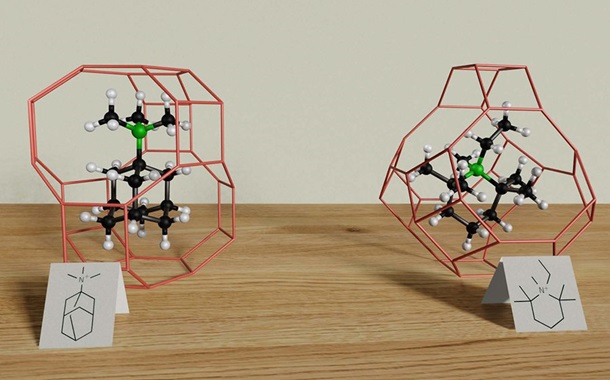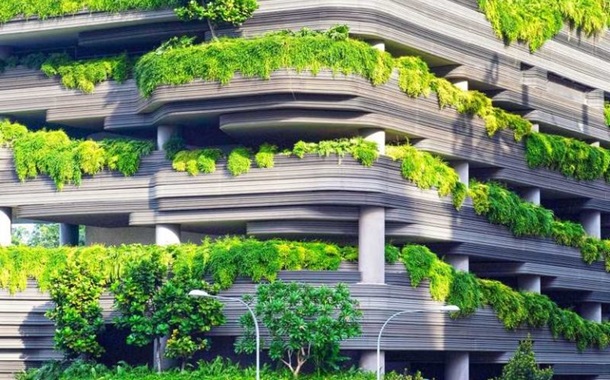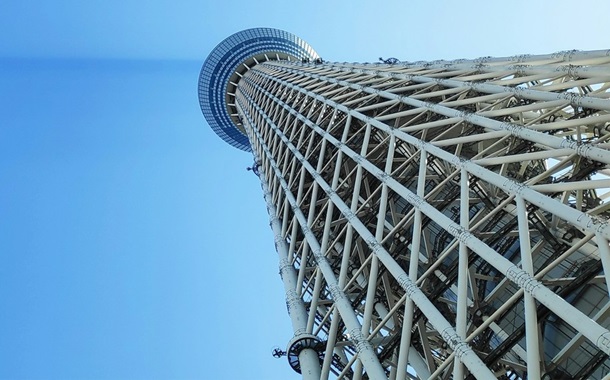Assessment of Fresh Water Reallocation by Treated Wastewater for Irrigation
Downloads
Doi:10.28991/HIJ-2025-06-01-016
Full Text:PDF
Downloads
Hajjar, T., Mohtar, R. H., Abou Jaoude, L., & Yanni, S. F. (2025). Treated wastewater reuse for irrigation in a semi-arid region. Science of the Total Environment, 966, 178579. doi:10.1016/j.scitotenv.2025.178579.
Leonel, L. P., & Tonetti, A. L. (2021). Wastewater reuse for crop irrigation: Crop yield, soil and human health implications based on giardiasis epidemiology. Science of the Total Environment, 775. doi:10.1016/j.scitotenv.2021.145833.
Thiloka Edirisooriya, E. M. N., Wang, H., Banerjee, S., Longley, K., Wright, W., Mizuno, W., & Xu, P. (2024). Economic feasibility of developing alternative water supplies for agricultural irrigation. Current Opinion in Chemical Engineering, 43, 100987. doi:10.1016/j.coche.2023.100987.
Ait-Mouheb, N., Mayaux, P.-L., Mateo-Sagasta, J., Hartani, T., & Molle, B. (2020). Water reuse: A resource for Mediterranean agriculture. Water Resources in the Mediterranean Region, 107–136, Elsevier, Amsterdam, Netherlands. doi:10.1016/b978-0-12-818086-0.00005-4
Aziz, R., Dragonetti, G., & Khadra, R. (2025). Integrating Field Data and Modeling for Sustainable Wastewater Irrigation Management: Case Studies from Jordan and Palestine. Water (Switzerland), 17(2), 228. doi:10.3390/w17020228.
Tawfik, M. H., Al-Zawaidah, H., Hoogesteger, J., Al-Zu'bi, M., Hellegers, P., Mateo-Sagasta, J., & Elmahdi, A. (2023). Shifting Waters: The Challenges of Transitioning from Freshwater to Treated Wastewater Irrigation in the Northern Jordan Valley. Water (Switzerland), 15(7), 1315. doi:10.3390/w15071315.
Qadir, M., Drechsel, P., Jiménez Cisneros, B., Kim, Y., Pramanik, A., Mehta, P., & Olaniyan, O. (2020). Global and regional potential of wastewater as a water, nutrient and energy source. Natural Resources Forum, 44(1), 40–51. doi:10.1111/1477-8947.12187.
Abou Jaoude, L., Kamaleddine, F., Bou Said, R., Mohtar, R. H., Dbaibo, R., & Yanni, S. F. (2025). Treated wastewater reuse and its impact on soil properties and potato and corn growth. Science of the Total Environment, 958, 178130. doi:10.1016/j.scitotenv.2024.178130.
Al-Hazmi, H. E., Mohammadi, A., Hejna, A., Majtacz, J., Esmaeili, A., Habibzadeh, S., Saeb, M. R., Badawi, M., Lima, E. C., & Mč…kinia, J. (2023). Wastewater reuse in agriculture: Prospects and challenges. Environmental Research, 236, 116711. doi:10.1016/j.envres.2023.116711.
Renai, L., Tozzi, F., Checchini, L., & Del Bubba, M. (2020). Impact of the use of treated wastewater for agricultural need: Behavior of organic micropollutants in soil, transfer to crops, and related risks. Wastewater Treatment and Reuse – Lessons Learned in Technological Developments and Management Issues, 103–135. doi:10.1016/bs.apmp.2020.07.008.
Hamdan, M., Abu-Awwad, A., & Abu-Madi, M. (2022). Willingness of farmers to use treated wastewater for irrigation in the West Bank, Palestine. International Journal of Water Resources Development, 38(3), 497–517. doi:10.1080/07900627.2021.1908236.
Urbano, V. R., Mendonça, T. G., Bastos, R. G., & Souza, C. F. (2017). Effects of treated wastewater irrigation on soil properties and lettuce yield. Agricultural Water Management, 181, 108–115. doi:10.1016/j.agwat.2016.12.001.
Pathiranage, W. B., Bray, L., Jones, K., Redwine, N., Saralvarez, J., & D'Alessio, M. (2024). Perception and acceptance towards water reuse in the Southeast United States: A public survey. Science of the Total Environment, 908, 168224. doi:10.1016/j.scitotenv.2023.168224.
Tarawneh, A., Assad, S., Alkhalil, S., & Suleiman, A. (2024). Assessing acceptance of treated wastewater reuse in Jordan: A study of knowledge and preferences. Desalination and Water Treatment, 317, 100030. doi:10.1016/j.dwt.2024.100030.
Hlavaty, H. (2018). Water management initiative: Review of water scarcity ranking methodologies. A Report Prepared for Tetra Tech, USAID Water Management Initiative (WMI), Amman, Jordan.
MWI. (2016). Water Substitution and Reuse Policy. Ministry of Water and Irrigation, Amman, Jordan.
MWI. (2020). Annual Report 2020. Ministry of Water and Irrigation (MWI), Amman, Jordan.
DOS. (2024). Interactive Database. Department of Statistics (DOS), Amman, Jordan. Available online: https://dosweb.dos.gov.jo (accessed on January 2025).
Central Bank of Jordan. (2018). Monthly Statistical Bulletin. Central Bank of Jordan, Amman, Jordan.
MWI: National Water Strategy. (2016). National Water Strategy. Ministry of Water and Irrigation (MWI), Amman, Jordan.
MWI. (2021). Water Budget for the Year 2020. Directorate of Strategic Planning, Ministry of Water and Irrigation (MWI), Amman, Jordan.
Abdulla, F. A., Alfarra, A., Qdais, H. A., & Sonneveld, B. (2016). Evaluation of Wastewater Treatment Plants in Jordan and Suitability for Reuse. Academia Journal of Environmental Science, 4(7), 111–117. doi:10.15413/ajes.2016.0305.
Abdulla, F., & Farahat, S. (2020). Impact of Climate Change on the Performance of Wastewater Treatment Plant: Case study Central Irbid WWTP (Jordan). Procedia Manufacturing, 44, 205–212. doi:10.1016/j.promfg.2020.02.223.
Jordanian Standards 893/2021. (2021). Water – Reclaimed Domestic Wastewater: Technical Regulation. Jordan Standards and Metrology Organization, Amman, Jordan.
McCornick, P. G., Amal Hijazi, A. H., & Sheikh, B. (2004). From wastewater reuse to water reclamation: progression of water reuse standards in Jordan. In Wastewater use in irrigated agriculture: Confronting the livelihood and environmental realities. CABI Publishing, Wallingford, United Kingdom.
Hussein, I. A. J., Abu"Sharar, T. M., & Mrayyan, B. (2005). Assessment of the application of treated wastewater and sewage sludge in productive agriculture: A case study from northern Jordan. Water and Environment Journal, 19(4), 394-403. doi:10.1111/j.1747-6593.2005.tb00578.x.
Tawfik, M. (2023). The Contested Nature of Wastewater Reuse in Agriculture Insights from Egypt and Jordan. Ph.D. Dissertation, Wageningen University and Research, Wageningen, Netherlands.
Hashem, M. S., & Qi, X. Bin. (2021). Treated wastewater irrigation-a review. Water (Switzerland), 13(11), 1527. doi:10.3390/w13111527.
WHO. (2013). Guidelines for the safe use of wastewater excreta and greywater. Vol. 1: Policy and Regulatory Aspects. World Health Organization (WHO), Geneva, Switzerland.
Alkhaza'leh, H., Abu-Awwad, A., & Alqinna, M. (2023). Effect of Irrigation with Treated Wastewater on Potatoes' Yields, Soil Chemical, Physical and Microbial properties. Jordan Journal of Earth and Environmental Sciences, 14(2), 135–145.
Hosney, H., Tawfik, M. H., Duker, A., & van der Steen, P. (2023). Prospects for treated wastewater reuse in agriculture in low- and middle-income countries: Systematic analysis and decision-making trees for diverse management approaches. Environmental Development, 46, 100849. doi:10.1016/j.envdev.2023.100849.
Shammout, M. A. W., Qtaishat, T., Rawabdeh, H., & Shatanawi, M. (2018). Improving water use efficiency under deficit irrigation in the Jordan Valley. Sustainability, 10(11), 4317. doi:10.3390/su10114317.
Janick, J. (2003). Horticultural Reviews (Volume 30). John Wiley & Sons, Hoboken, United States.
Abdel-Jabbar, S., Vallentin, A. & Boening-Zilkens, M. (2006). Guidelines for Reclaimed Water Irrigation in the Jordan Valley: Practical Recommendations for Farmers and Extension Workers. Jordan Valley Authority (JVA) and Deutsche Geselischaft für Technische Zusammenarbeit, Amman, Jordan.
Hasanuzzaman, M., & Tanveer, M. (2020). Salt and drought stress tolerance in plants: signaling networks and adaptive mechanisms. Springer Nature, Cham, Switzerland. doi:10.1007/978-3-030-40277-8.
Chen, W., Lu, S., Jiao, W., Wang, M., & Chang, A. C. (2013). Reclaimed water: A safe irrigation water source? Environmental Development, 8(1), 74–83. doi:10.1016/j.envdev.2013.04.003.
Carr, G. (2011). Water reuse for irrigated agriculture in Jordan: soil sustainability, perceptions and management. Water, Life and Civilisation, 415–428, Cambridge University Press, Cambridge, United Kingdom. doi:10.1017/cbo9780511975219.025.
Abdu, N., Abdulkadir, A., Agbenin, J. O., & Buerkert, A. (2011). Vertical distribution of heavy metals in wastewater-irrigated vegetable garden soils of three West African cities. Nutrient Cycling in Agroecosystems, 89(3), 387–397. doi:10.1007/s10705-010-9403-3.
Abu Madi, M., Braadbaart, O., Al-Sa'ed, R., & Alaerts, G. (2003). Willingness of farmers to pay for reclaimed wastewater in Jordan and Tunisia. Water Science and Technology: Water Supply, 3(4), 115–122. doi:10.2166/ws.2003.0052.
Choukr-Allah, R. (2010). Wastewater treatment and reuse. In Arab environment: water: sustainable management of a scarce resource. Arab Forum for Environment and Development (AFED), Beirut, Lebanon.
Qadir, M., Wichelns, D., Raschid-Sally, L., McCornick, P. G., Drechsel, P., Bahri, A., & Minhas, P. S. (2010). The challenges of wastewater irrigation in developing countries. Agricultural Water Management, 97(4), 561–568. doi:10.1016/j.agwat.2008.11.004.
Federal Ministry of Economic Cooperation and Development. (2019). Decentralized Wastewater Management in Jordan. Federal Ministry of Economic Cooperation and Development, Bonn, Germany.
Salgot, M., Vergés, C., & Angelakis, A. N. (2003). Risk assessment in wastewater recycling and reuse. Water Supply, 3(4), 301–309. doi:10.2166/ws.2003.0076.
Pedrero, F., Camposeo, S., Pace, B., Cefola, M., & Vivaldi, G. A. (2018). Use of reclaimed wastewater on fruit quality of nectarine in Southern Italy. Agricultural Water Management, 203, 186–192. doi:10.1016/j.agwat.2018.01.029.
Carr, G., Potter, R. B., & Nortcliff, S. (2011). Water reuse for irrigation in Jordan: Perceptions of water quality among farmers. Agricultural Water Management, 98(5), 847-854. doi:10.1016/j.agwat.2010.12.011.
Vallentin, A. (2006). Agricultural Use of Reclaimed Water - Experiences in Jordan. Water Practice and Technology, 1(2), wpt2006040. doi:10.2166/wpt.2006040.
Pescod, M. (1992). Wastewater treatment and use in agriculture - FAO irrigation and drainage paper 47. Food and Agriculture Organization of the United Nations, Rome, Italy.
Maas, E. V. (1993). Salinity and citriculture. Tree Physiology, 12(2), 195–216. doi:10.1093/treephys/12.2.195.
Maas, E. V., & Hoffman, G. J. (1977). Crop Salt Tolerance”Current Assessment. Journal of the Irrigation and Drainage Division, 103(2), 115–134. doi:10.1061/jrcea4.0001137.
Ayers, R. S., & Westcot, D. W. (1985). Water quality for agriculture. Food and Agriculture Organization of the United Nations, Rome, Italy.
Grieve, C. M., Grattan, S. R., & Maas, E. V. (2011). Plant Salt Tolerance. Agricultural Salinity Assessment and Management, 405–459, American Society of Civil Engineers (ASCE), Reston, United States. doi:10.1061/9780784411698.ch13.
Maranville, J. W., Baligar, V. C., Duncan, R. R., & Yohe, J. M. (1993). Proceedings of the Workshop on Adaptation of Plants to Soil Stresses. University of Nebraska – Lincoln, Lincoln, United States
Vila Verde, D. dos S., Mendes, M. I. de S., Nobre, L. V. da C., Souza, A. da S., dos Santos, K. C. F., & Soares Filho, W. dos S. (2024). In vitro tolerance of citrus rootstocks under saline stress. Plant Cell, Tissue and Organ Culture, 156(1), 13. doi:10.1007/s11240-023-02627-y.
Panigrahi, P. (2023). Impact of deficit irrigation on citrus production under a sub-humid climate: a case study. Water Supply, 23(3), 1177–1188. doi:10.2166/ws.2023.074.
Oubelkacem, A., Scardigno, A., & Choukr-Allah, R. (2020). Treated Wastewater Reuse on Citrus in Morocco: Assessing the Economic Feasibility of Irrigation and Nutrient Management Strategies. Integrated Environmental Assessment and Management, 16(6), 898–909. doi:10.1002/ieam.4314.
Bilal, H. M., Zulfiqar, R., Adnan, M., Umer, M. S., Islam, H., Zaheer, H., ... & Ahmad, I. (2020). Impact of salinity on citrus production; A review. International Journal of Applied Research, 6(8), 173-176.
Levy, Y., & Syvertsen, J. (2003). Irrigation Water Quality and Salinity Effects in Citrus Trees. Horticultural Reviews, 30, 37–82. doi:10.1002/9780470650837.ch2.
Simpson, C. R., Nelson, S. D., Melgar, J. C., Jifon, J., King, S. R., Schuster, G., & Volder, A. (2014). Growth response of grafted and ungrafted citrus trees to saline irrigation. Scientia Horticulturae, 169, 199–205. doi:10.1016/j.scienta.2014.02.020.
Murkute, A. A., Sharma, S., & Singh, S. K. (2005). Citrus in terms of soil and water salinity: A review. Journal of Scientific and Industrial Research, 64(6), 393–402.
Al-yassin A. (2004). Influence of Salinity on Citrus: a Review Paper. J Central European Agriculture, 5(4), 263–272.
Cerda, A., Nieves, M., & Guillen, M. G. (1990). Salt tolerance of lemon trees as affected by rootstock. Irrigation Science, 11(4), 245–249. doi:10.1007/BF00190540.
Greaser, G. & Harper, J. (1994). Agricultural alternatives: Enterprise budget analysis. Cooperative Extenstion, Penn State College of Agricultural Sciences, Pennsylvania, United States.
Young, R. A., & Loomis, J. B. (2014). Determining the Economic Value of Water. Routledge, New York, United States. doi:10.4324/9780203784112.
Menezes, F. M., Capodeferro, M. W., Smiderle, J. J., & Guimarí£es, P. E. (2022). Estimating Efficient Water Prices in the Sao Marcos River Basin: A Residual Imputation Approach. Journal of Water Resources Planning and Management, 148(5), 6022001. doi:10.1061/(asce)wr.1943-5452.0001538.
Hellegers, P., & Davidson, B. (2010). Determining the disaggregated economic value of irrigation water in the Musi sub-basin in India. Agricultural Water Management, 97(6), 933–938. doi:10.1016/j.agwat.2010.01.026.
Speelman, S., Farolfi, S., Perret, S., D'Haese, L., & D'Haese, M. (2008). Irrigation water value at small-scale schemes: Evidence from the North West Province, South Africa. International Journal of Water Resources Development, 24(4), 621–633. doi:10.1080/07900620802224536.
Scheierling, S., Treguer, D. O., & Booker, J. F. (2016). Water Productivity in Agriculture: Looking for Water in the Agricultural Productivity and Efficiency Literature. Water Economics and Policy, 2(3), 1650007. doi:10.1142/S2382624X16500077.
Kiprop, J. K., Lagat, J. K., Mshenga, P., & Macharia, A. M. (2015). Determining the economic value of irrigation water in Kerio Valley Basin (Kenya) by residual value method. Journal of Economics and Sustainable Development, 6(7), 102-108.
Ashfaq, M., Jabeen, S., & Baig, I. A. (2005). Estimation of the economic value of irrigation water. Journal of Agriculture & Social Sciences, 1(3), 270-272.
Tabieh, M., Al-Karablieh, E., Salman, A., Al-Qudah, H., Al-Rimawi, A., & Qtaishat, T. (2015). Farmers' Ability to Pay for Irrigation Water in the Jordan Valley. Journal of Water Resource and Protection, 07(15), 1157–1173. doi:10.4236/jwarp.2015.715095.
Al-Karablieh, E. K., Salman, A. Z., Al-Omari, A. S., Wolff, H. P., Al-Assa'd, T. A., Hunaiti, D. A., & Subah, A. M. (2012). Estimation of the economic value of irrigation water in Jordan. Journal of Agricultural Science and Technology. 2(5B), 487.
Allen, R. G., Pereira, L. S., Raes, D., & Smith, M. (1998). Crop evapotranspiration-Guidelines for computing crop water requirements-FAO Irrigation and drainage paper 56. 300(9), D05109, Food and Agriculture Organization (FAO), Rome, Italy.
FAO (2021). CropWat 0.8. Land and Water Division, Food and Agriculture Organization, Rome, Italy. Available online: https://www.fao.org/land-water/databases-and-software/cropwat/en/ (accessed on January 2025).
Al-Bakri, J. T., Shawash, S., Ghanim, A., & Abdelkhaleq, R. (2016). Geospatial techniques for improved water management in Jordan. Water (Switzerland), 8(4), 132. doi:10.3390/w8040132.
van den Berg, C., & Al Nimer, S. K. H. A. (2016). The Cost of Irrigation Water in the Jordan Valley. World Bank Group, Washington, United States. doi:10.1596/k8697.
Al-Assa'd, T. A., Al-Karablieh, E. K., Salman, A. Z., & Wolff, H. P. (2011, October). Recognizing the Economic Value of Domestic Water in Jordan as a Way for Appropriate Setting of Water Pricing. Proceedings of the 1st Water and Environment International Conference, 26-29 October, 2011, Marrakech, Morocco.
Wolff, H. P., Al-Karablieh, E., Al-Assa'd, T., Subah, A., & Salman, A. Z. (2012). Jordan water demand management study: On behalf of the Jordanian Ministry of Water and Irrigation in cooperation with the French Development Agency (AFD). Water Science and Technology: Water Supply, 12(1), 38–44. doi:10.2166/ws.2011.114.
Salman, A., Al-Karablieh, E., & Haddadin, M. (2008). Limits of pricing policy in curtailing household water consumption under scarcity conditions. Water Policy, 10(3), 295–304. doi:10.2166/wp.2008.040.
Haddadin, M. J. (2006). Water resources in Jordan: evolving policies for development, the environment, and conflict resolution. Resources for the Future. Routledge, New York, United States. doi:10.4324/9781936331604.
IRMO. (2011). Water Demand Management in Mediterranean Countries: Thinking outside the water box! Croatian case study. Blue Plan Regional Activity Center UN, IRMO, Zagreb, Croatia
AFD. (2011). Jordan water demand management study. Water demand management in Mediterranean countries: Thinking outside the water box. Jordan case study. Diagnostic Report – Final. French Agency of Development, Amman, Jordan.
Wolff, H. P., Al-Karablieh, E., Al-Assa'd, T., Subah, A., & Salman, A. Z. (2012). Jordan water demand management study: on behalf of the Jordanian Ministry of Water and Irrigation in cooperation with the French Development Agency (AFD). Water Supply, 12(1), 38–44. doi:10.2166/ws.2011.114.
- This work (including HTML and PDF Files) is licensed under a Creative Commons Attribution 4.0 International License.





















